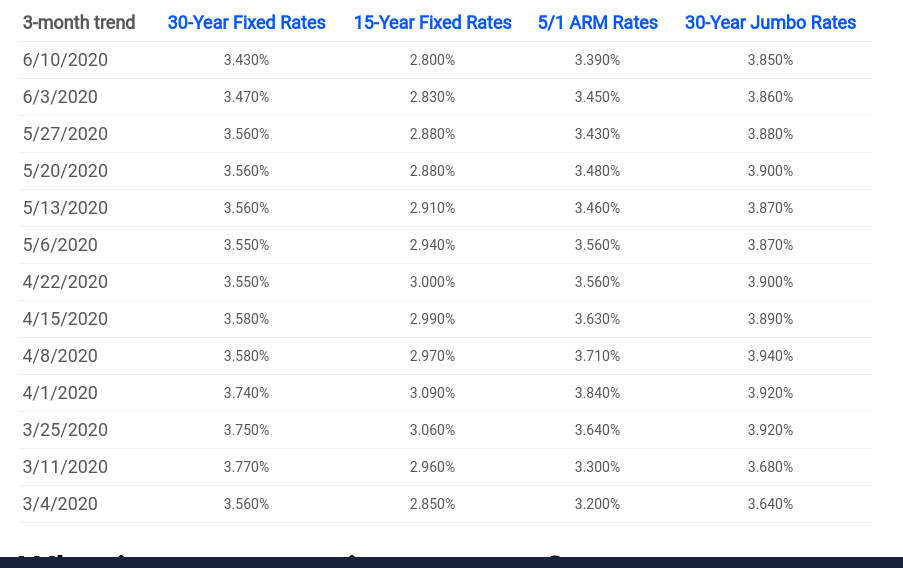Most of us dream of retirement, sleeping in, and no commute, all of our days will belong to us, and we can use them to do whatever we want. For those into the FIRE (Financial Independence, Retire Early) movement, retirement might be just around the corner. For those planning to retire at the traditional age of 65, it might be decades away.
Whatever category you fall into, retirement spending plan needs to be at the forefront of your planning.
A shocking number of Americans have no retirement savings.
The U.S. Federal Reserve found that nearly a quarter of all American adults have no retirement savings or pension.
The data was further broken down by age:
- Ages 18-29: 42% had no retirement savings
- Age 30-44: 26% had no retirement savings
- Ages 45-59: 17% had no retirement savings
- Ages 60 and over: 13% had no retirement savings.
Scary.
Whatever your age and whatever age you plan to retire, the bottom line is that if you’re not saving for retirement, you have to start, and some of you have to play catch up.
But how do you set a goal when there are so many unknowns? One of those unknowns is what your spending habits will look like in the future.
But like other areas of retirement financial planning, we can use some rules of thumb, take some data from our current life, and use a little crystal ball gazing to come up with a fair estimate of our retirement spending.
Based on that, we can have a better picture of the goal number we’re working toward.
What are the Biggest Expenses in Retirement?
Your most significant retirement expenses as a retired 35-year-old will look different from a retired 60-year-old.
Early Retirees
Some of those in the FIRE movement plan to retire at age 30, but early retirement can mean several different ages:
- For Medicare purposes, early retirement is anything before age 65, when you become eligible for Medicare.
- According to Social Security, early retirement is anything before age 62, the earliest age at which you can receive Social Security benefits.
- If we’re talking about retirement accounts like a 401k or Roth IRA, you must be at least age 59 ½ to make penalty-free withdrawals.
The younger you are, the more different your retirement spending will be compared to a traditional retiree.
Housing
It’s recommended older retirees pay off their mortgage before retiring. But this isn’t necessarily good advice for young retirees.
They have a long time horizon for their investments and many years of retirement, possibly decades.
Did You Know?
The average mortgage interest rates are below 4%, while a conservative rate of return over a long time horizon in the stock market is around 7%.
Paying off a mortgage early means diverting money that could make 3% more if invested.

Additionally, young retirees may prefer to live in a city or suburb with a higher cost of living compared to older retirees who prefer moving away.
They may also not yet be empty nesters who can downsize. So for young retirees, housing will likely be the most significant monthly expenses.
Education
By the time a newborn baby turns 18, U.S. families will have spent an average of $233,610 (before college tuition bills).
Early retirees may have children still at home but they’re probably not young, so they will already have absorbed a chunk of those expenses. But what about college?
Get out your checkbooks parents.
Depending on the type of institution, the average cost of a four-year college degree ranges from $37,640 to $129,640.
Investing
With no paycheck coming in, young retirees must have money arriving from somewhere, and for many, that somewhere is investing.
Ideally, you’ll continue to contribute to your retirement accounts because of the tax advantages.
But because you can’t access those accounts without penalty (there are some exceptions) for withdrawing money before age 59 ½, you’ll need to contribute to taxable retirement accounts as well.
And if you’re really into FIRE, you probably own rental property; it’s a significant component of the FIRE strategy.
The right rental property can provide you with cash flow for your spending needs without having to take money from your taxable accounts at a bad time in the market or take the penalty and tax hit from withdrawing early from your retirement savings.
Health Insurance
In some cases, early retirees will have a spouse who continues to work and whose employer provides health insurance for both of them. If not, health insurance premiums or medical expenses may be your most significant cost.
Traditional Retirees
When we think of the traditional retirement age, we think 65, but there is a bit of a range.
The average retirement age in the U.S. is 59.88 years old. 18.7% of retirees retired at age 62, and a whopping 63.1% retired between 57 and 66.
Let’s call it 60 for the age of the traditional retiree.
Medical Care
People are eligible for Medicare at 65, but if you retire at the average age of almost 60, you will have to cover that gap and find a source of healthcare if you’re not covered under your spouse.
And it won’t be cheap. At age 60, the average health insurance premium is $543 per month.
Even once you reach 65 and Medicare kicks in, your healthcare expenses aren’t over. Medicare only covers services deemed medically necessary and doesn’t always cover routine check-ups or routine physical exams.
Long-Term Care
The scary part is nursing home care. Medicare doesn’t cover long-term care. And long-term care in America is costly. The average cost for a semi-private nursing home is $89,297 per year, for a private room, it’s $100,375.
Nearly half of men 65 and older, 47% will need long-term care during their lifetime, while for women, it’s 58%. Given these numbers, buying long-term care insurance should be part of your retirement planning.
The average cost of long-term care insurance is $2,727 per year. Add that to your retirement spending budget.
Housing
According to the Bureau of Labor Statistics, about 80% of retirees have paid off their mortgages, but 23% still have mortgage payments, and 20% pay rent.
The average spending on housing after retirement is just under $17,000.
Even if your mortgage is paid, owning a house still comes with expenses like property taxes, maintenance, and repairs. It’s why we say a home is not an investment.
And the Rest
Whatever age you retire at, you still have nearly all of the expenses working folks have:
- Transportation
- Utilities
- Communications (phone, cable/streaming, internet)
- Insurance premiums (auto, home, renters)
- Food
- Clothing
- Entertainment
- Gifts (which can include money given to family members)
- Charitable donations
Estimating Retirement Living Expenses
Retired people generally spend less than those who continue to work, but the drop might not be as significant as you imagine. It’s about 22% or $14,000 a year less.
You might not be reaping as many savings as you thought, but this statistic does give us a helpful starting point. And from that, how much we need to save using one of the most popular retirement savings rules of thumb.
Go through your budget for the past 12 months and get a total for your annual expenses. If there’s a significant spending category now that you know you won’t have when you retire, leave it out.
We’re only looking for a ballpark here; no need to detail every imaginable spending pattern.
Personal Capital is Now Empower - Track your entire portfolio for free.
All your accounts in one place
- Plan for retirement
- Monitor your investments
- Uncover hidden fees
The average household spends $5,102 per month which is a little over $60,000 a year. We’ll use that nice round number for our example.
Now, reduce that by 22% from our stat above. Our final number is $46,800. Again, for simplicity, let’s call it $50,000.
The Multiply by 25 Rule
The Multiply by 25 Rule estimates how much money you’ll need to retire by multiplying your annual expenses by 25. If we’re average like our example above, we need to have about $50,000 per year during retirement.
The money for this formula comes from our investment portfolio; it doesn’t factor in other retirement income sources like rental properties, Social Security, or pensions.
To withdraw $50,000 a year, we need $1.25 million in retirement savings:
$50,000 x 25 = $1,250,000
The rule assumes you’ll get an annualized real return of 4% per year and that stocks over the long term (at least 15 years) will return about 7% per year.
The real return adjusts for an inflation rate of 3% per year.
7% – 3% = 4%
The 4% Rule
That 4% will look familiar if you remember the 4% rule for retirement savings. The Multiply by 25 method derives from it. According to the 4% rule, your retirement savings will last at least 30 years.
If you’re planning to retire early, 30 years may not be enough. The average life expectancy in the U.S. is almost 80 years. If you plan to have a long retirement, using the Multiply by 30 or the 3.5% rule is recommended by personal finance experts.
Get our best strategies, tools, and support sent straight to your inbox.
What Happens If You Run Out of Money in Retirement?
As much as many people dream of retirement, they have nightmares about outliving their retirement money. And those are the people who have retirement savings.
As we saw earlier, millions of Americans don’t.
Early Retirees
The flippant response to young retirees running out of money is to start working again. But it may not be that easy.
They may have long gaps in their work history potential employers won’t like. And they may fall into an age bracket that makes getting a job hard.
Older employees expect higher salaries and sometimes cost a lot more in healthcare expenses than younger employees. Not exactly ideal for an employer.
Take Note
Early retirees may have to reenter the workforce on a lower rung at a lower salary.
Traditional Retirees
The picture for traditional retirees isn’t rosy, either. Some will have retired because of health reasons. And they’ll possibly face more age discrimination than the early retirees.
Those in this situation may have to make severe budget sacrifices and live on Social Security benefits.
Rethinking Retirement
The best scenario is not to run out of money during retirement. And to do that we can work harder and save more. Or we can rethink retirement.
You shouldn’t think of retirement as a total end of work, just an end to mandatory work.
A couple of decades is too long to be on a perpetual vacation. Working is good for many reasons. It’s good for our mind, our social life, it gives us some routine and purpose. And it makes us money.
Without labor, nothing prospers.
Tweet ThisIf you have enough money to retire, you can work at something you love or want to do without worrying about how much it pays!
Do you like dogs? Be a dog walker. Do you like kids? Go back to school and become a teacher. Do you love baking? Start selling your goods at a local farmer’s market.
You get the point, monetize your hobby. You don’t have to make a lot, but you’ll still have some money coming in.
Your retirement savings will last longer because you’re not spending it and continues to grow. This isn’t your parents’ or your grandparents’ retirement. It’s yours; make it whatever you want.



